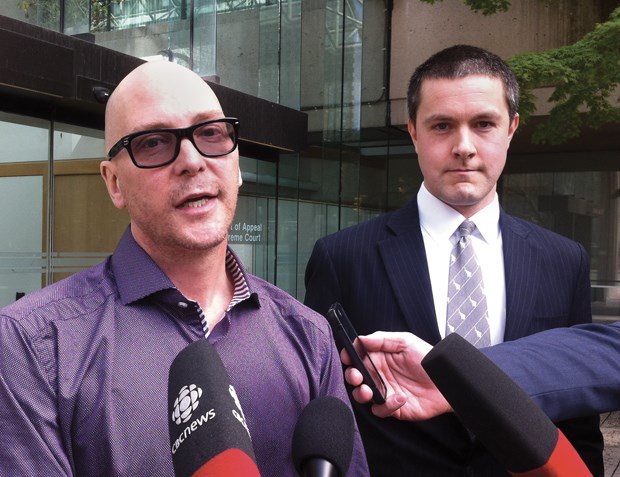A B.C. Supreme Court justice has ordered a North Vancouver filmmaker to remove over four minutes of video footage from his controversial documentary about whales and dolphins in captivity at the Vancouver Aquarium.
B.C. Supreme Court Justice Jeanne Watchuk made the order Monday afternoon.
Filmmaker Gary Charbonneau said he considers the ruling on the injunction a partial victory because even though parts of his film must be removed, most of it can remain online while the case is before the court.
Charbonneau said he’s hoping the court fight over the documentary Vancouver Aquarium Uncovered will inspire more people to watch the film and get involved in debates about whales in captivity.
Charbonneau made his comments after the judge ruled on a request from the Vancouver Aquarium asking for an injunction ordering that Charbonneau’s film be removed from Internet sites like YouTube and Vimeo as well as his own website vancouveraquariumuncovered.com.
In her decision, Watchuk didn’t order that the film be taken down, but did order that 15 segments of the documentary – containing video footage or photographs of whales and dolphins at the aquarium – be edited out of the film.
Those segments amounted to between four and five minutes of footage in the 60-minute film. The judge gave Charbonneau and his company Evotion Films Inc. seven days to comply with the order.
In a press statement, representatives of the Vancouver Aquarium said they were pleased with Monday’s court decision, adding the aquarium feels its programs need to be “fairly represented and protected from those who choose to deliberately make false claims.”
Charbonneau and his lawyer said outside the court the changes will not make a significant difference to the film or its impact.
“I don’t think the critique of the aquarium is in any way diluted when those photos and footage are taken out,” said Arden Beddoes, Charbonneau’s lawyer.
According to court documents filed by Charbonneau, the film was viewed about 9,000 times on YouTube between July 2015 and February 2016, when the aquarium launched the lawsuit. Since then, the number of times it has been viewed has climbed to about 19,000.
The Vancouver Aquarium launched a lawsuit against Charbonneau and his film company in February, claiming parts of the film violated copyright law by using material from the aquarium’s website without permission. The aquarium also argued the filmmaker used video footage from a visit to the facility last year that he was forbidden to include.
Beddoes argued the filmmaker is exempt from the copyright restriction under part of the law that permits fair use for public and educational purposes.
He added those issues have not yet been determined by the court on a permanent basis.
In court documents, Beddoes argues the aquarium is using the issue of copyright as a roundabout way of attacking the content of the documentary. “It’s an important and timely piece on an issue which has galvanized a lot of Canadians – which is whales and dolphins in captivity,” said Beddoes on Monday.
Charbonneau said the 2013 movie Blackfish brought renewed attention to the issue. The recent decision of SeaWorld in San Diego to ban breeding of orcas in captivity also has highlighted issues in the debate.
In a website post that responds to Charbonneau’s film, the aquarium described it as “an inaccurate movie that misleads the viewer” and disputed specific claims in the film about how the aquarium acquires some of the whales and dolphins at the facility.
No trial date has been set for the case.



